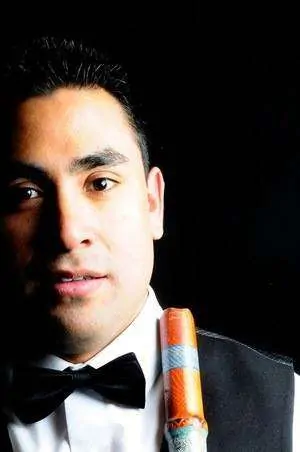
Interview by Dr. Dawn Karima
Q) It's great to visit with you!!! There's a lot to congratulate you for these days! What are some of the honors and accomplishments you have received recently?
A) As of today I'm hosting as Master of Ceremonies for the World Flute Society's Inaugural Convention in Eau Claire, Wisconsin. Performers from cultures throughout the world are on full-display during this convention with a special focus on American Indian flutes. Attendees have also traveled from all over the world to celebrate and participate in this convention. Being Native and from Wisconsin, I couldn't be more honored to ensure our guests and performers have a memorable time. Just last week, I'm extremely excited to announce I've been officially signed with Canyon Records out of Phoenix, Arizona. They have been in the business of supporting and promoting American Indian music for more than 60 years and I am speechless of the opportunity. In addition, I've been approached by Marcus Denny to make an album with him and well-known singer/songmaker Jeremy “Worm” Dearly, both of the Midnite Express drum group. I'm especially excited about working with them because the project is intended to be unique and it's especially important to me that I reach Native people throughout Turtle Island. Just last month I hosted an internationally attended workshop back home on the Native flute. It's an annual workshop where folks come to my community and learn about the instrument in an environment that influences my music. It was an intense event where people have made connections with folks from all over the world, in my hometown.
Q) You're so talented! Yet, you are humble and approachable. What is your Native heritage? What are some of your tribal values that shape your character? How so?
A) I'm Ojibwe from the Lac du Flambeau Indian Reservation in Northern Wisconsin on my father's side and Tohono O'odham from Southern Arizona on my mother's side. My parents met at Haskell. I always love sharing that fact with Indian people wherever I go because I'll often hear a story from how one of their family members or themselves met at Haskell.
The most defining cultural value that I am aware of that shapes my character is respect for others and their beliefs. Because I travel so much I'm always learning about other people and ways they do things. I can't recall the countless times where I have heard elders and people of my community emphasizing to respect others. As a result, I'm always listening. You can learn a lot about others and even yourself by observing in a respectful manner about people. I focus on my work and music as a blessing and you are there to learn from them. The most memorable events and performances I have done have been where I have taken something significant away and when I mention “something” I don't mean something that is tangible or animate. I'm implying something that impacts my life. Those are powerful experiences.
Q) What are some of the lessons from your Tribal heritage that keep you spiritually centered? How do those internal ideas influence your music?
A) There are many lessons from my Tribal heritage that keep me spiritually centered. I think one thing in common with many Native people is that we view that we are connected and related to everything on Earth in some capacity or another. We live our lives knowing that we are connected to everything. Another lesson from my heritage that influences me and my music is our characteristic as a people to be resilient. There is no argument that it was government policy to terminate and eliminate us a people, but we survived all of that. We are still here. I think that alone is a powerful testament of the human spirit. When I make my music, when I compose songs I am influence heavily by that resilience, that this music and the instrument I play is still here. Taking that we are connected to everything, I often will allow my travels and experiences to influence my emotional state of being and make music that way. Many of my songs are reflections of personal experiences.
Q) How did you start playing? How did you know that this was what you truly wanted to do?
A) I started playing when I was an undergraduate student at Marquette University in Milwaukee, Wisconsin in the early part of the 2000's. It was by chance I think. I started listening to Native flute music to help me focus on studying. It was challenging to leave the reservation and be entirely alone and focus on reading and writing for 50 hours, or more, a week. And while listening, I became very interested in the sounds of the Native American flute and developed a like for certain artists and their style of playing. Some names that come to mind are R. Carlos Nakai, Bryan Akipa, Kevin Locke, and Mary Youngblood. Milwaukee hosts the largest American Indian cultural festival, the Indian Summer Festival, and there are a ton of vendors there. And I started thinking about playing while I attended one year. I spoke with a man who had flutes and when I actually held one I felt I could teach myself how to play. So, lo and behold, I slowly taught myself in my dorm room while going to college. And as I became better and better I knew it was something I wanted in my life; I didn't necessarily think I would ever become a performer. In fact, prior to this instrument I have no musical background or experience.
Q) What do you think the power of Native music truly is? Why do you believe your music has become so popular? Why does our music reach so many Non-Natives?
A) I think the power of Native music is the ability to connect to the heart. Native music, no matter where you on Turtle Island, always touches the heart. From peyote songs to sundance songs and from powwow songs to flute music, it is all very spiritual, very powerful music. It all has the ability to heal. I always ask myself why people would ever like my music and I still don't necessarily have the answer. But I think it has a lot to do with believing in yourself and what you do and put out there. If you believe in yourself that's all that matters. In addition, I think I emphasize and share something that is very different than the common listener to music. Although there are a number of Native flute players out there, there still aren't many. It's not a common thing to hear. The sound itself is captivating. I think my non-Native following is quite extensive because, let's be honest, there are more non-Natives than Native. Beyond that, I am always approached by non-Natives attempting to connect to the past. I often hear of some lineage in the family or an experience that they had earlier in life where they feel the need to share with me. All I can do is listen and provide some kind of answer and I don't have all of the answers. But that experience for the listener carries to someone else, they share with their friends and so on and so forth. Also, there are more non-Native communities that are open to experiencing our culture than, let's say, a hundred years ago.
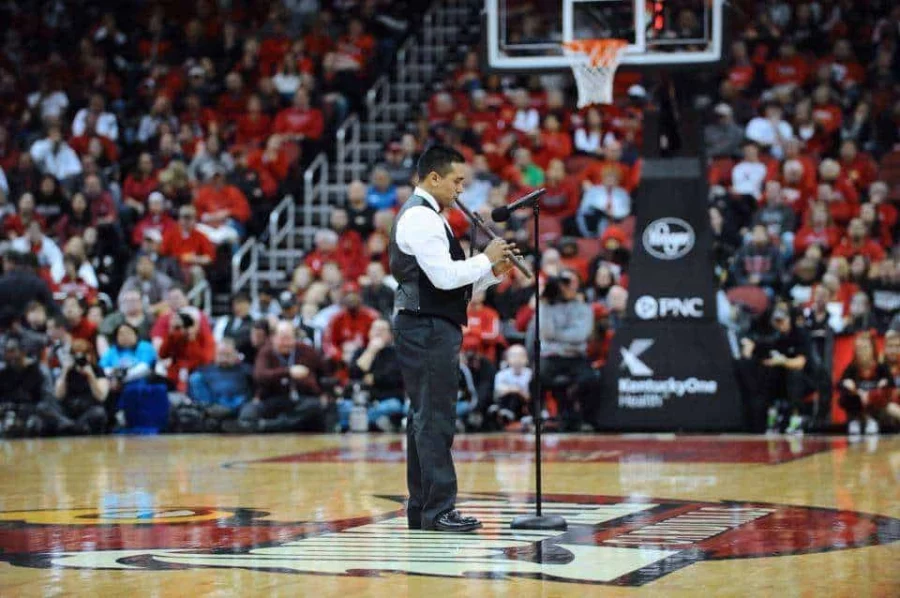
Q) What do you think distinguishes your music from other artists?
A) I think what distinguishes my music from other artists is my dedication to preserve the past. I emphasize how long these instruments have been around, been in existence and when people from all over the world travel and visit places it's to see and experience things that have been around for thousands of years. Our instruments have been around that long. I have been focusing heavily on sharing and performing with instruments that have been reintroduced. Instruments that have been studied, measured and brought back to us. Not many are focusing on that. The play-ability of older instruments is very different than flutes you can find on the internet or any powwow or trader's market. It's an intense experience to share the sound of something that has been lost for so long.
Q) How do your songs come to you? Do you improvise when you create? Or do you hear the songs first before you make them?
A) My songs come to most often through reflection of my life, my experiences traveling, or through dreams. Yes, I said it – dreams. There are times when songs visit me in dreams and I remember and bring them to life. I don't read music notes and writing songs is not something I'm capable of nor have a genuine interest in. I also make songs from the songs of our people, round dance songs, prayer songs, etc. Original flutes, unlike many of the flutes that are out there today, were created to genuinely imitate the sound of the human voice. Any traditional flute songs is an imitation of some other song.
There are times when I improvise. I'm not a strict musician. The Native flute has tremendous capability to improvise with. I'll often create a melody and try to improvise something into it. I'll try it out and if it works for me, I'll stick to it. There are times it can be challenging to make new songs, but when that happens I'll take a visit to collections or some place that has old historical recordings and listen. I am heavily influenced by where we come from and our past.
Q) When you play, what do you hope your audience will learn about themselves as they listen? What do you hope that they will discover about Native People and Culture?
A) When I play, I don't particularly think about whether or not an audience will learn something about themselves. My focus is presenting the songs, the history, and a little about who we are as American Indian people. What are struggles are, what our goals are, and to honor our treaties. We are a beautiful people with a beautiful story to tell. Each community, of course, is different and has its own challenges. If someone wants truth, ask. We are an honest people. Come to us with honest intentions and let's move forward together. I realize how that sounds, but it's the truth. We need to participate in solving problems and achieving goals together.
Q) Where can we purchase your music? How can we see you perform? How can folks connect with you?
A) My music is available online at my website www.darrenthompson.net. In addition, folks can find my music through my production label Bear Tracks Digital Media, they're online at www.beartraks.net. My schedule is taking me all over this fall and winter. The best way to find out where I'll be on my website. I manage a blog and write a monthly newsletter highlighting the work I'm involved in and I feel that people should be mindful of.
Q) What do you wish we knew about you that we don't already know?
A) One of the things I'd like to share with people that I haven't discussed is my dedication to American Indian communities. Right now, I'm a contractor with Native American Tourism of Wisconsin. I provide insight and communications input to the organization. It's a unique organization that is dedicated to working with all 11 Federally recognized Tribes in the State of Wisconsin on all things tourism. It's a way to help Tribes diversify their economies and tell their own stories. There is interest in non-Natives visiting our communities, learning from us, and they want to know how they can do so. A good friend of mine, Ernie Stevens III is the Executive Director of the organization and he is doing great work on behalf of Tribes in the State. For all things Native Wisconsin, please visit www.nativewisconsin.com. Prior to that I spent some time out in Washington, D.C., working in communications for the National Congress of American Indians. That was an experience that I still cherish today. It has provided me with great skills and relationships throughout Indian Country. There are great things happening in Indian Country.
Q) Mvto…thank you for your sharing with us! We sure do appreciate you!
A) Thank you!
Dr Dawn Karima is a NAMMY winning recording artist for her cd, THE DESIRE OF NATIONS, who released a new cd, THE STARS OF HEAVEN, this summer.
Last Updated on January 23, 2024 by Paul G
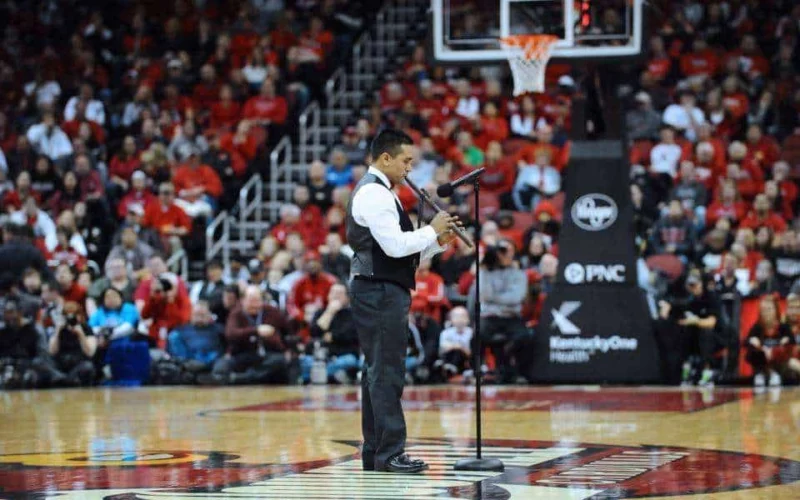
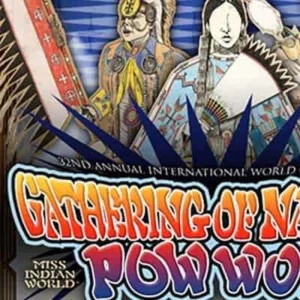
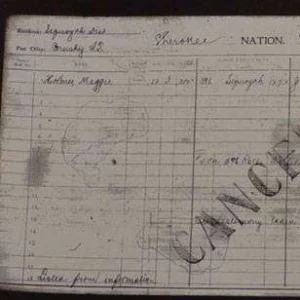
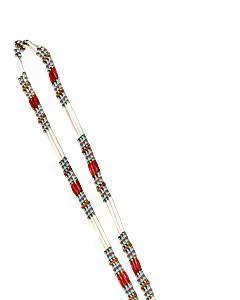
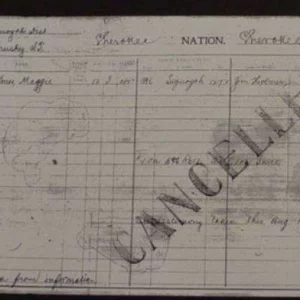
Madeleine Bessette
says:Found a working link to some of his music:
http://www.dillmans.com/dcaf/2014/darren-thompson.html
Madeleine Bessette
says:I truly enjoyed the interview and felt Darren was truly a great guy. Wanted to hear just a bit of his playing but the link provided is dead in the water.
Would appreciate another link, if possible to a sample of his music.